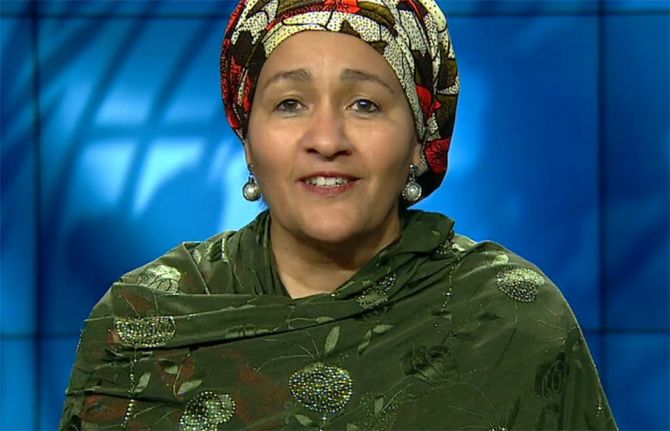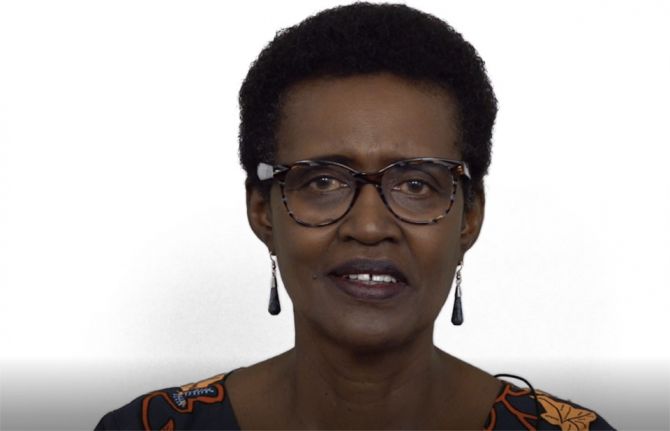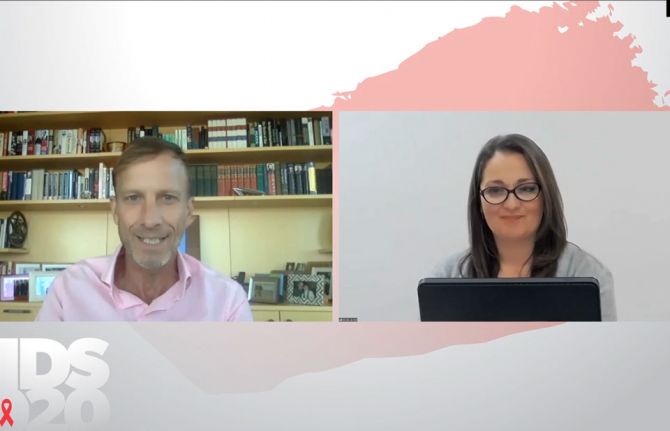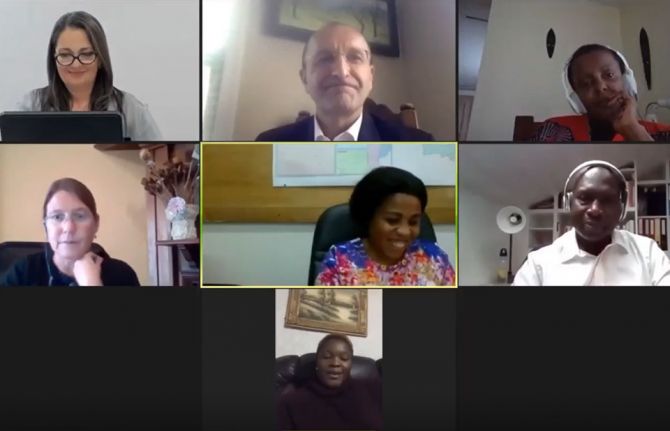




Feature Story
Advancing TB services for people living with HIV during the COVID-19 pandemic
10 July 2020
10 July 2020 10 July 2020The COVID-19 pandemic has spread globally at a speed and magnitude unprecedented in modern times, claiming more than half a million lives and damaging societies and economies. In low- and middle-income countries especially, the COVID-19 pandemic and response is interacting with the global pandemics of tuberculosis (TB) and HIV, creating additional barriers to accessing essential prevention, diagnosis, treatment and care services.
During the opening plenary of the fourth TB/HIV pre-conference of the 2020 International AIDS Conference, the United Nations Deputy Secretary-General, Amina Mohammed, noted that, “COVID-19, like HIV decades before it, and tuberculosis centuries before that, brings into stark reality how inequalities of all types can hollow out our societies, institutions and systems, making us all more vulnerable to health, climate, economic and human security threats. COVID-19 is affecting everyone but not everyone is equally affected.” People must be placed at the centre of the response through rights-based and gender-transformative approaches that also put an end to stigma and discrimination of all types.
TB is the leading infectious cause of death globally and remains the main cause of death among people living with HIV, being responsible for one in three AIDS-related deaths (251 000) in 2018. World Health Organization and UNAIDS estimates suggest that the COVID-19 epidemic and response could cause hundreds of thousands of new HIV infections, a doubling of AIDS-related deaths in sub-Saharan Africa and an additional 6.3 million more TB cases and 1.4 million more TB deaths over the next five years.
The presenters emphasized the need to learn lessons from our experience with the interlinked pandemics of HIV and TB. Rapid transfer of COVID-19 innovations and technology to everyone in need is critical. “Rapid and equitable access to COVID-19 innovations is non-negotiable!” said Winnie Byanyima, UNAIDS Executive Director. “It is imperative that people come before profits, patents and intellectual property. UNAIDS is co-leading the global campaign for a People’s Vaccine to make the COVID-19 vaccine and other technologies patent-free, mass produced, distributed fairly and free at the point of use.”
Over the past decade, billions of dollars have been invested in strengthening health systems infrastructure to deliver TB and HIV services. With the support of civil society and COVID-19 investments this existing infrastructure can be rapidly employed to scale up the COVID-19 response and reach those being left behind while maintaining quality TB and HIV services. TB and HIV civil society organizations are already assisting in finding and testing people with COVID-19 and helping to deliver multimonth supplies of TB and HIV treatment in order to reduce the burden on health-care workers and reduce the risk of transmission of COVID-19.
Few low-income countries would have the capacity to test for COVID-19 without the TB and HIV investments in the multipurpose laboratory testing equipment currently used to diagnose drug-resistant TB and in early infant diagnosis of HIV and monitoring of HIV viral load.
Less than half of all people living with HIV who develop TB disease are diagnosed and treated for both HIV and TB. Increased community testing for COVID-19 provides an opportunity to test for TB and HIV to find the missing millions of cases of TB and HIV in low- and middle-income countries.
While COVID-19 threatens the fragile gains we have made in the HIV and TB response in recent decades, it also offers opportunities to strengthen the response to TB and HIV and systems for health in general.
Ms Byanyima concluded her remarks by saying, “The COVID-19 crisis is a decisive moment for all of us. The right to health has never been higher on the global agenda. This is the time to strengthen the resilience of systems for health and future-proof the health and well-being of generations to come. This is how we will overcome this crisis and finally end AIDS and TB.”
Related
 Government ensures continuity of treatment in Malawi
Government ensures continuity of treatment in Malawi

10 February 2025


